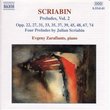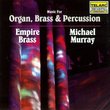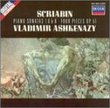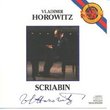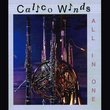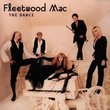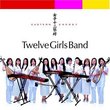| All Artists: Alexander Scriabin, Evgeny Zarafiants Title: Scriabin: Preludes Vol.1 Members Wishing: 0 Total Copies: 2 Label: Naxos Original Release Date: 1/1/2000 Re-Release Date: 4/11/2000 Genre: Classical Styles: Chamber Music, Historical Periods, Classical (c.1770-1830), Modern, 20th, & 21st Century Number of Discs: 1 SwapaCD Credits: 1 UPC: 730099499729 |
Search - Alexander Scriabin, Evgeny Zarafiants :: Scriabin: Preludes Vol.1
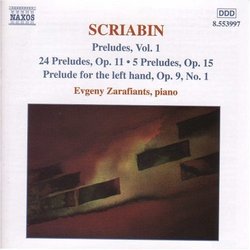 | Alexander Scriabin, Evgeny Zarafiants Scriabin: Preludes Vol.1 Genre: Classical
![header=[] body=[This CD is available to be requested as disc only.]](/images/attributes/disc.png?v=15401716) ![header=[] body=[This CD is available to be requested with the disc and back insert.]](/images/attributes/disc_back.png?v=15401716) ![header=[] body=[This CD is available to be requested with the disc and front insert.]](/images/attributes/disc_front.png?v=15401716) ![header=[] body=[This CD is available to be requested with the disc, front and back inserts.]](/images/attributes/disc_front_back.png?v=15401716) |
Larger Image |
CD DetailsSimilarly Requested CDs
|
CD ReviewsFaithful rendition Richard H. Haswell | Corpus Christi, TX USA | 08/29/2000 (5 out of 5 stars) "Another reviewer pretty well damns this recording, but I'm of a different mind. I think its interpretation of Scriabin's Preludes is much to be commended. Befitting Scriabin's mood music, it shows a fine range of emotions, from wispy to fervent. Remember these are preludes, not etudes. His own indications are "vagamente," "doloroso," "languido," and especially "andante" and "lento," as well as the faster tempi. How can you say Zarafiants plays them too slow, when he follows Scriabin's own metronome settings? Too many virtuoso pianists use Scriabin's wildest pieces to show off. The result is people thinking that that's all Scriabin is--crashing, booming, and a thousand notes a minute. Well, this is Scriabin as well, and I'm glad Zarafiants takes the time to give this side of him to us faithfully." Disappointing M. A COMBRINK | Cape Town, South Africa | 06/28/2000 (2 out of 5 stars) "Naxos do not often get it as wrong as this. Scriabin is volatile, powerful, with surges of emotions often barely kept in check. This recording is expansive and luxurious, but it fails to get off the ground. The tempi are painfully slow, and the excitment totally absent. A bad disc for first timers, an interesting new look at the works for those who already know his music. Scriabin should never bore. Turn to Deyanova for the real thing, or wait for Hamelin to get around to these" WOODEN! Great music ill-served by blinkered literalism Dace Gisclard | Houston, TX | 06/11/2008 (1 out of 5 stars) "I entirely agree with everything Mr. "Albert" says, except he's far too kind. Mr. Haswell's review mentions that another reviewer has "damned" this CD. I'm not sure if this refers to me, but it doesn't matter. Mr. Haswell has expressed his disagreement in such a gentlemanly manner that no one could possibly be offended. Some Amazon reviewers could learn a lesson about this from him.
Summoning up my great love of Scriabin, I feel I must point out that my execration of Zarafiants' performances have nothing to do with whether the pieces are preludes or etudes. Presumably, Mr. Haswell's remark that "preludes are not etudes" is meant to convey that preludes don't offer opportunities for "technical display", whereas etudes do. Not so!--preludes can be just as technically showy as etudes. One might say that "prelude" in the sense used by Chopin, Scriabin, Kabalevsky et al., means a short "character piece" that is not a "prelude" to anything. However, even this does not pin things down. For musicians, this particular usage of "prelude" carries NO connotations of ANY kind regarding emotional character, technical difficulty, tempo, length (witness Chopin's examples in A-flat and D-flat, or at least 23 of Rachmaninoff's 24, which are all quite long), or anything else. Conversely, some etudes are quite undemanding, brief, and even sight-readable. But, getting back to Zarafiants--my objections center upon his pacing and articulation of this music. Take Op.11 No.1--Zarafiants plays every note of the prevailing eighth-note texture with equal emphasis and unvarying metronomic regularity. In theory, this sounds laudable--in practice, it's deadly. Musicians refer to this kind of playing as "notey." It's the same trap amateur singers fall into when told "I can't understand the words." The singer's usual reaction to this observation is to give every syllable equal emphasis. This earnest over-projection SOUNDS like a good idea, but in practice it actually INHIBITS linguistic and emotional communication. Try reciting a familiar text like the "Pledge of Allegiance" with every syllable equally stressed and at an unvarying pace--a la "Robbie the Robot"--hopefully, you'll see what I mean. Music is a language--we don't speak that way, why should we play music that way? This is precisely what Zarafiants inflicts on Scriabin. If everything is equally important, then NOTHING is important. Also it IS too slow. True, the metronome marking is quarter = 67-76, but the tempo instruction is "Vivace." As with all such markings, this is intended as much as a description of character as it is of tempo. Try playing this piece at the metronome marking--it won't feel even remotely "vivacious" or "lively." Perhaps Zarafiants was trying to see if he could make the metronome marking work--he doesn't convince me. SCRIABIN HIMSELF played it at about 132-138! This is not humbug--we actually possess recordings of this piece and others PLAYED BY THE COMPOSER! They are cylinders (not unreliable piano rolls) and they play at correct pitch. Horowitz, Lewenthal, Ponti, and Lettberg--all respectable Scriabinists--all play this piece much faster than the metronome marking. Horowitz, at least, lived close enough in time to Scriabin's death to have worked with teachers who knew the composer's playing at first hand. This is not the only such case. The metronome marking for Op.11 No.14 is dotted quarter plus quarter (i.e., five eighth notes) = 67-72, but it is described as "Presto" (meaning VERY FAST)! Scriabin plays it at about 92-96! The skeptical or curious can hear these Scriabin cylinders on HARMONIA MUNDI's "Saison Russe" series, RUS 788032, issued in 1997. Throughout this CD, Zarfiants plays every note with the same earnest equality of emphasis. This lack of nuance is probably what makes many of his tempi seem slow, because there is no tension and release; no beginning, middle and endings to phrases; no point-to-point ductus; no journeys, no points of arrival. THIS is my reason for so thoroughly disliking this CD and its companion, Vol.II. As for being "helpful" to those seeking a complete recording of Scriabin's Preludes ONLY, I'm afraid I can't offer much assistance. My favorite is Maria Lettberg's, contained in her 8-CD set of all the works with opus numbers. As of this date, copies are still turning up on Amazon and Amazon.UK). Ponti's is a little messy but tolerable, and cheaply available as part of his two-volume recording of the complete piano music. With dickering from an equalizer or the tone controls the sound can be made tolerable, but it's not the greatest. Among separate recordings of the complete Preludes, Piers Lane is the best of a bad lot, although he does not project inner voices with sufficient profile. The new ARTE NOVA set falls victim to the malaise of "expressiveness = self-indulgent sound-bathing at ultra-slow tempi with directionless hyper-rubato" that's currently infesting university recital performances of everything from Schumann, Brahms and Strauss to even Faure and Poulenc. My advice--snap up Lettberg while you can. In the meantime, Ponti or Lane are stopgaps." |

 Track Listings (49) - Disc #1
Track Listings (49) - Disc #1